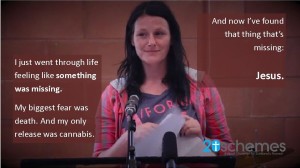We arrived in South Korea after twenty hours of travel, including the exhausting 13 hour flight across Canada, Siberia and China. We found the Incheon Airport to be one of the most friendly and peaceful we have ever encountered. Actually most everyone in the Korean service industry were good ambassadors and very helpful and accommodating to us. Our son, Michael and his girlfriend Mia (Jeon Eun Gi) especially helped us adapt to our new surroundings.
If you have visited another country, you recognize you are a foreigner in a strange land, adjusting to a culture that is new to you with different foods, manners, language, and practices.
 One of the places where we stayed was a traditional Korean guest house. The tiny room had no bed or chairs or closet. Instead of a bed, we are given floor mats/quilts to sleep on. It wasn’t the level of comfort we were accustomed to but the fact quickly came to mind that many in the world do not have even this.
One of the places where we stayed was a traditional Korean guest house. The tiny room had no bed or chairs or closet. Instead of a bed, we are given floor mats/quilts to sleep on. It wasn’t the level of comfort we were accustomed to but the fact quickly came to mind that many in the world do not have even this.
Imagine if, while staying in the guesthouse for just three nights, we decided to tear out a wall and build an addition to make room for a bed and sofa and chairs for our lodging. You would consider it absurd to make such extravagant purchases for such a short visit. You’d say, “Bryan, remember where you belong. Invest your valuable resources in your permanent home.” And you would be right.
In fact, we are all travelers and sojourners in a foreign land. This temporary place we call home is just a stopping place for each of us. We often fail to recognize this because it is all we know. And while we are here, we are called to be Christ’s ambassadors, seeking not our own pleasures, but instead motivated by the call to urge others to be reconciled with God. (2 Corinthians 5:20) Instead of fighting to assert our ‘rights’ as tourists seeking to make our surroundings more comfortable, we are actually called to put others first (Philippians 2:3-4). Each of us is an ambassador to those around us, especially those who think, talk, behave and believe differently from us.
I wonder what ‘strange and foreign lands’ you will encounter today. What different beliefs and actions will rise up against your own? What people will beg your welcoming accommodation? Will they see you as entrenched in this world or as a foreigner, an ambassador of Christ? Hold your ground and keep your behavior excellent among those around you…that they may see that your citizenship is really in heaven and because of your kindness and integrity, come to be reconciled with God.
“Beloved, I urge you as aliens and strangers to abstain from fleshly lusts which wage war against the soul. Keep your behavior excellent among the Gentiles, so that in the thing in which they slander you as evildoers, they may because of your good deeds, as they observe them, glorify God in the day of visitation.” 1 Peter 2:11-12

